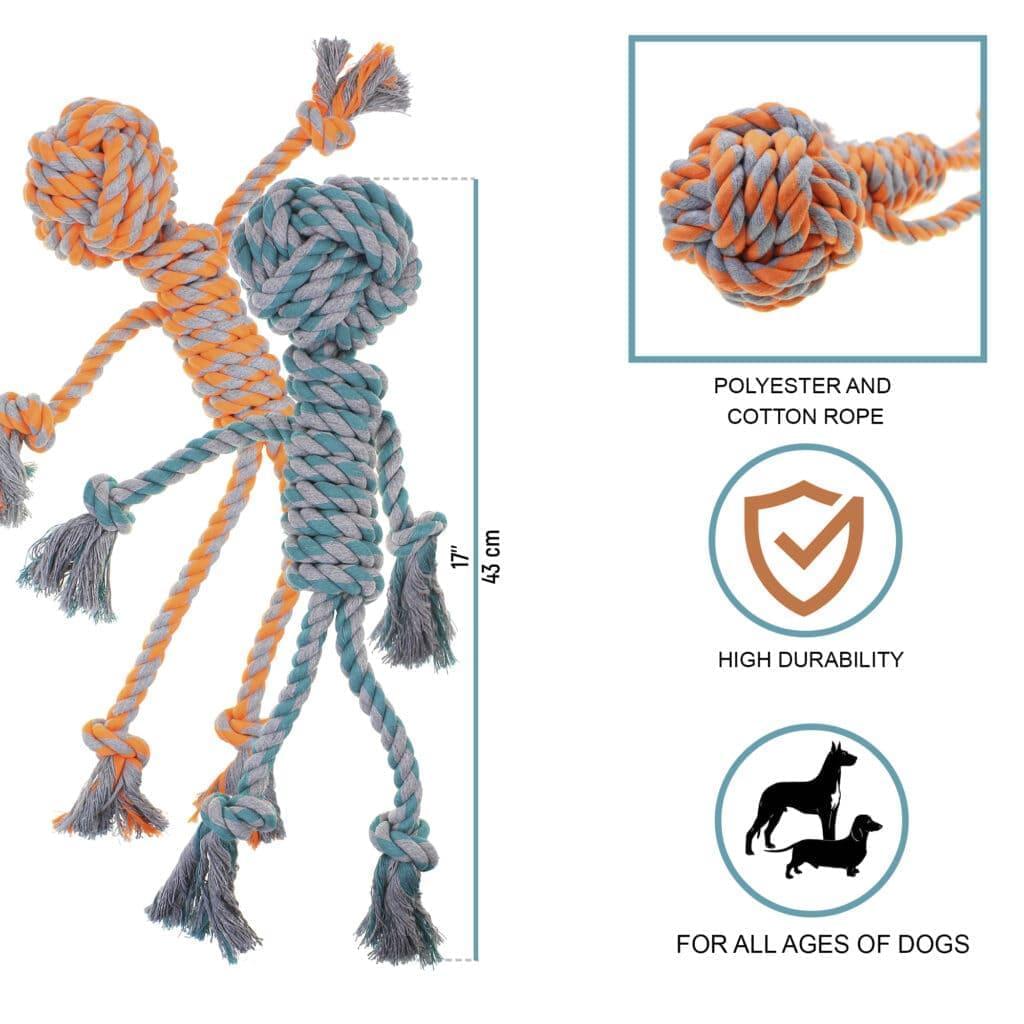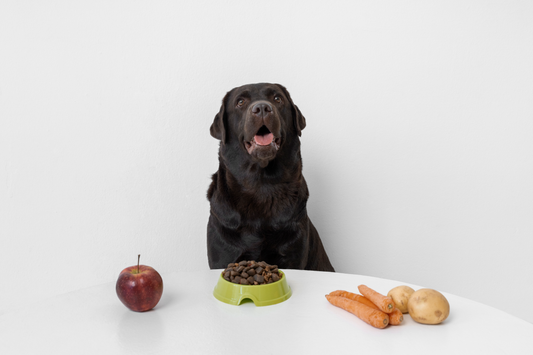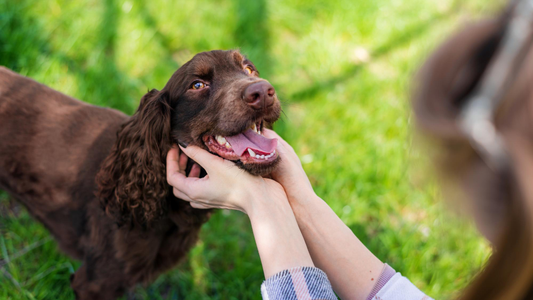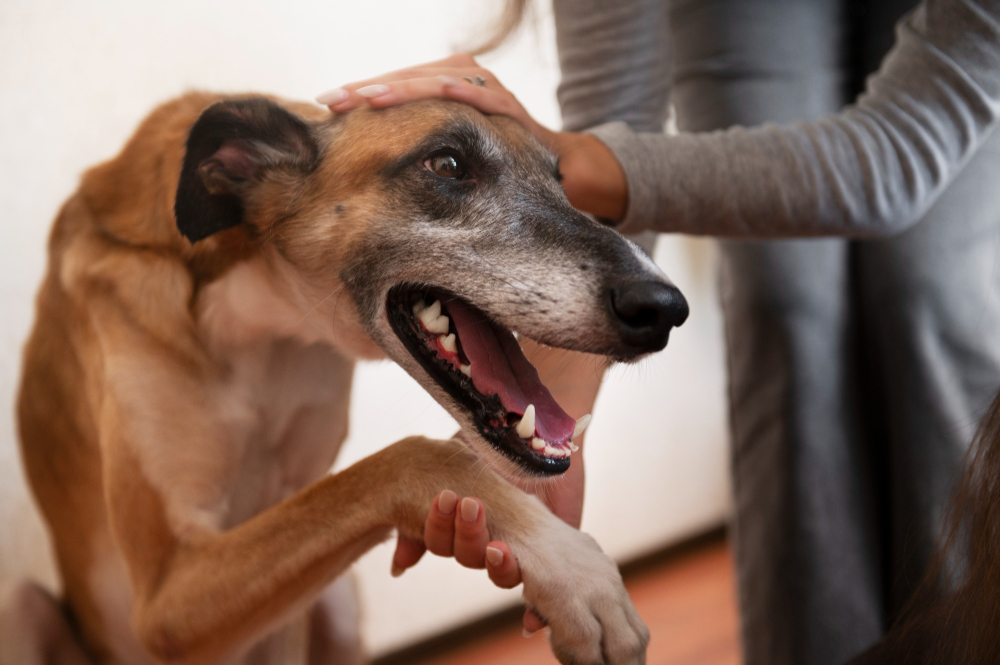
Have you ever noticed how your pet picks up your habits and quirks?
From the way you greet people to your favorite lounging spot, pets are like sponges, absorbing our behaviors and routines. It's not just a coincidence. Animals are sensible and highly motivated. They often mirror the actions of their owners.
So, next time you catch your furry friend doing something oddly familiar, remember that they might just be taking cues for certain behaviors from one dog or learning a particular behavior from you!
Regarding dog training, consistency and patience are critical factors in achieving success with your furry companion.
Let's dive into the fascinating world of training and the behaviors pets learn from their beloved owners and their dog counterparts.
5 Interesting Behaviors Dogs Learn From Their Owners
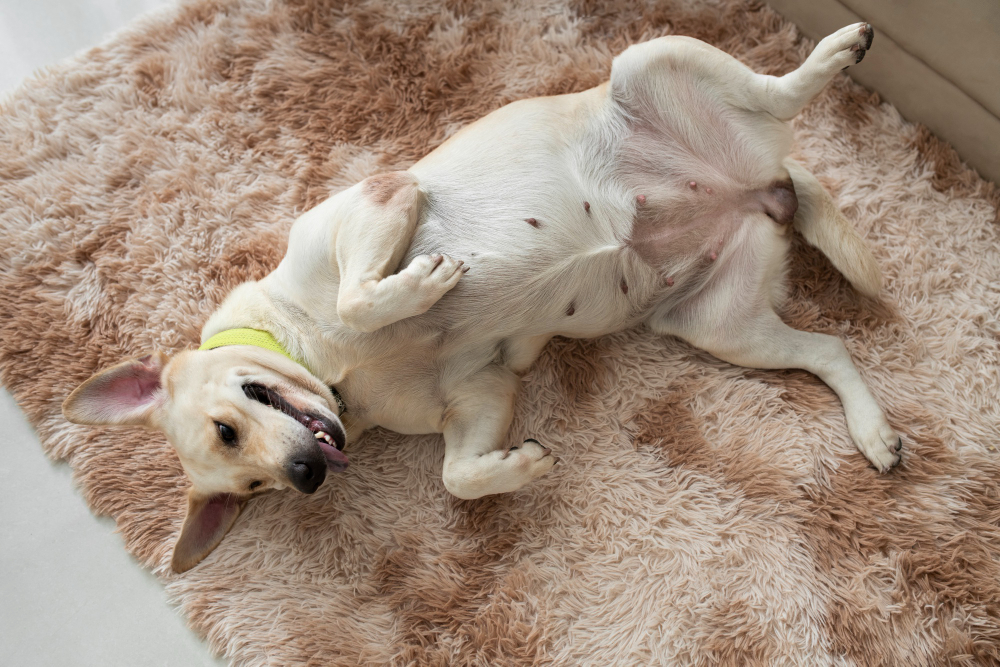
Dogs, our loyal canine companions, learn from their human and dog counterparts.
Did you know that according to a study by the American Kennel Club, different dog breeds can learn over 100 words and commands?
These dogs-learned behaviors showcase the deep bond and adaptability between dogs and dog owners, making every day with our four-legged companions a delightful adventure!
Here are five fascinating dog behaviors they often acquire:
-
Doorbell Dashing
Dogs often associate the doorbell with the arrival of guests, treats, or exciting deliveries. A study published in Animal Cognition states that dogs have an extraordinary ability to recognize and respond to human-made sounds, including doorbells.
Over a brief period, dogs respond to the sound and rush to the door, eager to jump, bark, and join their owner in the excitement.
Research conducted by dog trainers at the University of Lincoln found that dogs rely on operant conditioning and can learn to associate specific sounds with specific events, such as the sound of a doorbell signaling the arrival of visitors.
Some dogs might even be barking or jumping and wagging their tails enthusiastically, mirroring the reactions and behavior of their owners.
The American Veterinary Medical Association states that dogs' sense of hearing lets them detect sounds at frequencies higher than humans can perceive, thus making them particularly attuned to auditory cues like doorbells.
This ability of dogs to anticipate, process, and react to environmental stimuli demonstrates the remarkable adaptability and intelligence of many owners of our canine companions. It depends on positive and negative reinforcement.
-
TV Watching
One certain behavior dogs showcase is the mundane activity of sitting and watching television.
Research conducted by Animal Cognition experts at the University of California, Davis, suggests that dogs possess the cognitive ability to recognize images on a screen for a brief period, including those displayed on televisions.
This means that when they see their humans relaxing in front of the screen, dogs may become curious and join in the viewing experience.
They may display learned behavior such as barking, growling, or even attempting to interact with the other animals on the screen, indicating their engagement with the content.
Whether following the movements of animals in nature documentaries or simply enjoying the soothing sounds emanating from the television, dogs can develop a fascination with this electronic device, mimicking the behavior they see in their owners.
This canine behavior also highlights dogs' remarkable adaptability and capacity to integrate themselves into various aspects of human life, including entertainment media.
-
Tableside Begging
Dogs are quick learners, especially regarding behaviors and training that result in positive outcomes. According to a study, dogs can understand and respond to human social cues related to mealtime behavior.
It's pretty common for dog owners to pass down food to their furry friends while having dinner.
Over time, your dog learns to associate mealtime with the opportunity for a reward for eating a tasty morsel of food and may adopt the habit of lingering near the table, hoping for a share of the feast.
This learned behavior is not merely a result of hunger. Still, this learned behavior also showcases their cognitive skill to pick up on small, subtle cues and adapt their actions to maximize rewards.
Moreover, research conducted by the American Society for the Prevention of Cruelty to Animals (ASPCA) has brought forward that dogs' keen sense of smell plays a significant role in their behavior around mealtime.
They can smell the aroma of food from a distance and may be drawn to the dining area in anticipation and reward of a potential treat.
This combination of social learning and olfactory cue sensitivity underscores the sophisticated ways in which dogs learn, affecting how dogs interact with their environment and how they respond to human and dog behavior.
-
Morning Routine Anticipation
Dogs thrive on routine and are experts at recognizing patterns in their environment. As creatures of habit, for example, they quickly learn to anticipate the start of their morning walk based on the actions of their owners.
Whether it's the jingle of keys, the sound of footsteps, or the sight of a leash being picked up, dogs pick up on these signals and eagerly gather by the door, ready to jump in for their daily adventure.
This learned behavior highlights their ability to synchronize their actions with their owners, creating a sense of shared excitement, fear, and anticipation.
-
Emotional Mirroring
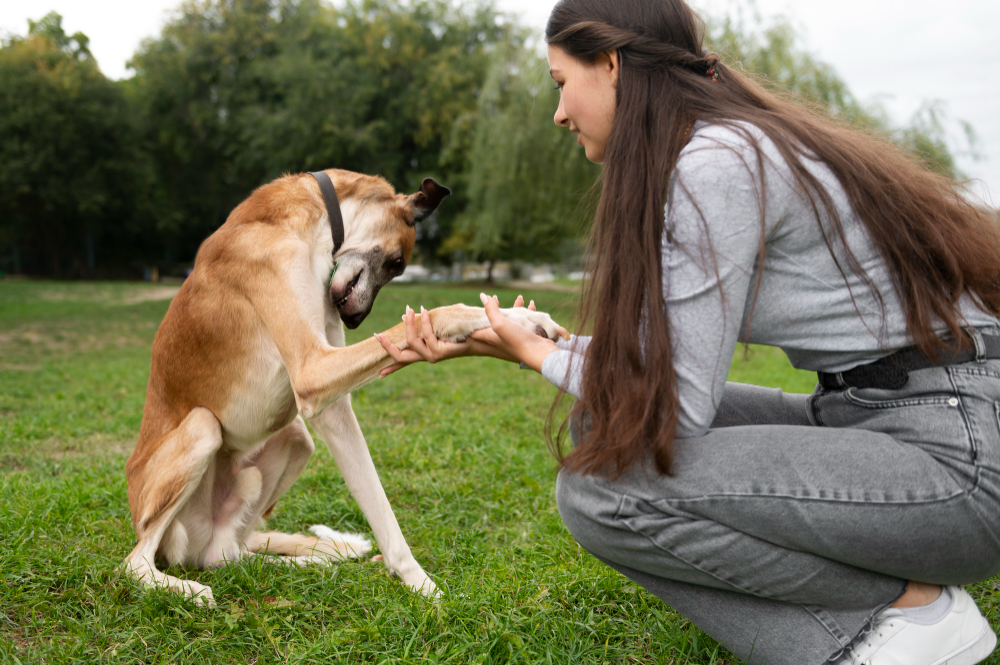
Dogs are incredibly empathetic animals, capable of sensing and responding to their owners' emotions. Dogs may instinctively offer comfort and support when they see their humans experiencing distress or sadness.
This can manifest in various ways, such as cuddling up beside their owner, licking away tears, or simply providing the dog owner with a reassuring presence. Through these actions, dogs demonstrate their deep understanding of human emotions and innate desire to give companionship and solace to those they love.
This canine behavior only underscores the profound bond between dogs and their owners, enriching both parties and many owners' lives with the love and understanding of one dog.
-
Waking Up Early
This habit isn't merely a coincidence of one dog's behavior; it is a dog's behavior due to various factors. Firstly, dogs thrive on operant conditioning, so if their owners consistently wake up early, dogs will follow suit, anticipating the day's activities.
Additionally, dogs associate waking up early with engaging many owners in enjoyable activities like morning walks or playtime. Positive and negative reinforcement also play a significant role; if dogs adopt the idea that waking up early leads to rewards or positive attention from their owners, they will be more inclined to continue this behavior.
Moreover, environmental cues such as changes in light or noise further prompt dogs to eat and wake up early. Lastly, dogs are social animals, driven by the desire to be close to their owners.
Witnessing their owners wake other dogs up early and engage in their morning routines motivates other dogs around to do the same, fostering social bonding.
Therefore, if your furry friend is eager to rise with the sun, it's likely because they're following your lead and keen to share in your daily adventures.
Final Words

Our furry house companions are more than just pets they are keen learners. Our house pets are intelligent! They copy what we do and get used to our routines.
They love the doorbell and TV time, just like we do. So, when you see your dog copying you, remember how close you are. Enjoy these fun moments together—they make every moment of every day special with your furry friend!












